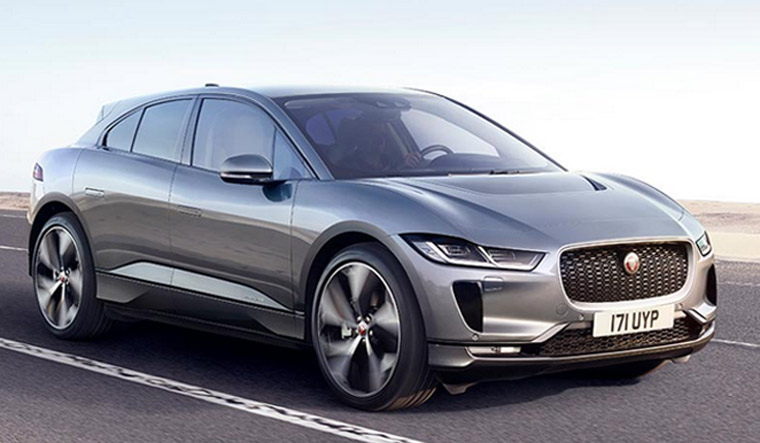Jaguar opened bookings for its I-Pace electric car in India on Tuesday morning, adding traction to the momentum in India's electric vehicle space. A day earlier, reports had emerged that cab agregator Ola was looking to expand into electric two wheelers—Ola already owns a subsidiary that is in the business of charging solutions.
This, coupled with a new report launched today that says electric 2-wheeler penetration could reach up to 35% (and 3-wheelers as much as 75%) in ten years time, means the sector is in for an upswing in the coming days. Quite a silver lining considering the dismal projections for the sunrise sector following the breakout of Covid-19. The report by KPMG says that better and increased availability of charging stations in major Indian cities, easier financing options (including subsidies by some state governments), reduced battery prices and increased awareness were all paving the way for increased adoption of electric vehicles in India.
Jaguar, a subsidiary of Tata Motors, will make the I-Pace, an all-electric SUV, available from March onward. The car, which won the prestigious 'Car of the year' award last year when it was first launched in international markets, come with a 90 kWh lithium ion battery. “We are committed to the introduction of electrified vehicles across the Jaguar and Land Rover portfolio,” said Rohit Suri, president and managing director of Jaguar Land Rover India, announcing the launch.
Despite the lull in the scene following lockdown, the recent moves have meant that the EV segment in India is headed for good times. It was reported on Monday that Ola, India's cab agregator unicorn, was scouting for land to set up the world's biggest e-scooter manufacturing hub. Ola's move comes after its core taxi hailing app business took a knock following the coronavirus breakout.
In fact, the EV inflection point in India seems set to happen first among two and three wheelers space, despite all the hype and noice being made about electric cars. The existing all-electric car line-up in the Indian market include Hyundai Kona, MG ZS and the Tigor and Nexon models from Tata Motors. In the luxury space, Jaguar I-Pace joins the ECQ model from Mercedes, which was announced a few weeks ago.
Recently Tesla, that torch bearer of an electric future, had upped its activity in India, since CEO Elon Musk announced that the company was going to enter the Indian market 'for sure' next year. State governments of Karnataka and Maharashtra have both been wooing the path-breaking innovator. While Tesla had discussed setting up a research and innovation centre in Bengaluru, Maharashtra virtually rolled out a red carpet last week, offering the company land for setting up its factory in the state, possibly around Pune.
However many believe that the electric car scene in India will gain traction only once a small EV car, or at least an EV hatchback, hits the market. Maruti Suzuki was oft thought best positioned to set the cat among the pigeons, and had even showed off its Electric small car at the Auto Expo in February. However, the company has clammed up since then, with not even a timeline for launch on offer. Yet, at the same time, Renault, the French motor major, was spotted testing its small electric car Zoe on the roads recently. The model has already earned good reviews as a compact electric car abroad, and could well be just the kick-start that electric cars need in the country.
India's EV scene picks up momentum
Jaguar opened bookings for its I-Pace electric car in India on Tuesday morning

TAGS
📣 The Week is now on Telegram. Click here to join our channel (@TheWeekmagazine) and stay updated with the latest headlines
read more
-

Ariel Henry resigns as Haiti PM, paving way for new govt to take power
-

Lok Sabha polls 2024 phase 2: Maharashtra gears up for Sena vs Sena contest in three seats | Details
-

Five documentaries for parents of autistic children
-

SRH vs RCB: Rajat Patidar, Virat Kohli score fifties, Unadkat shines | As it happened in IPL
-

How significant is the second test flight for the Gaganyaan mission?



